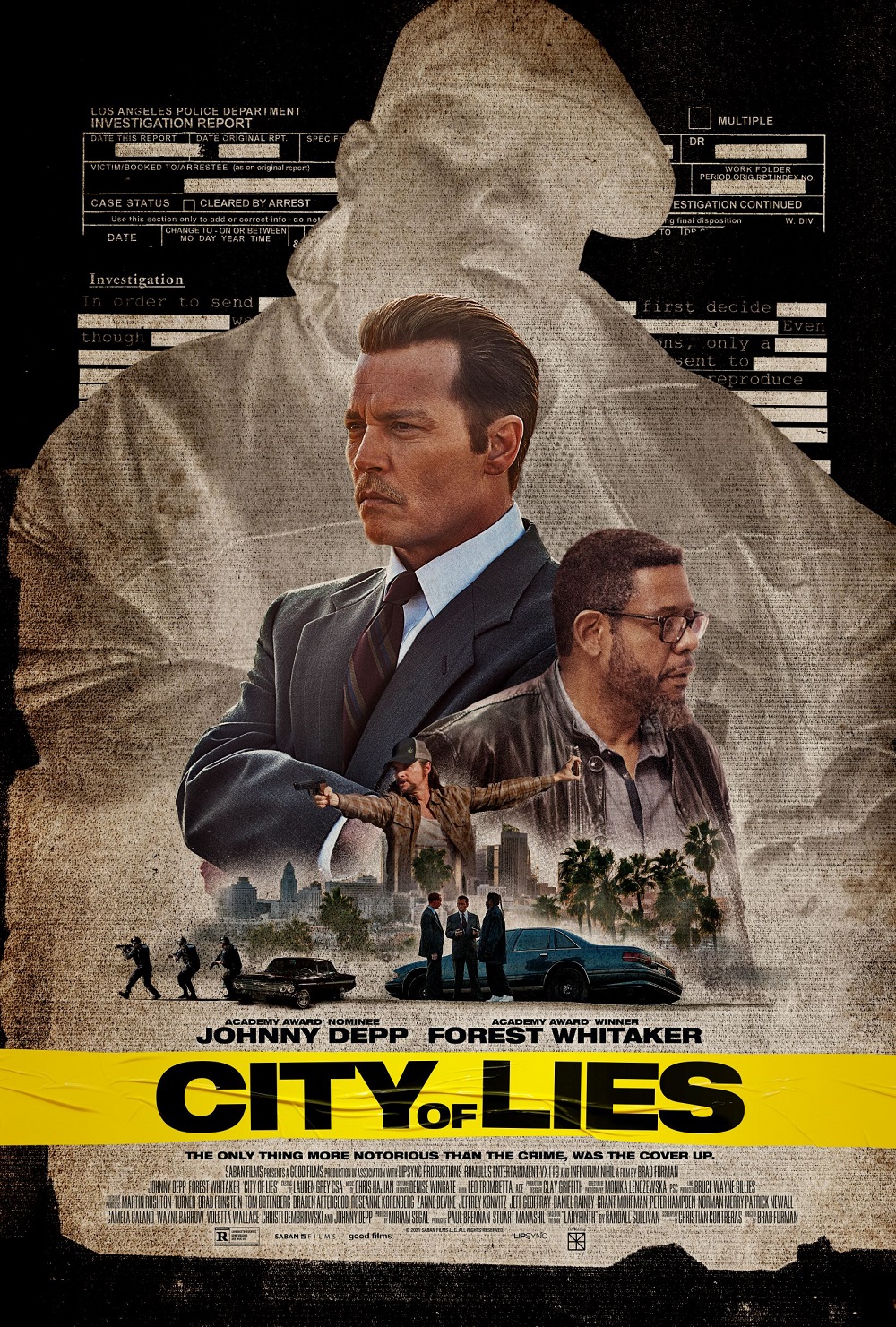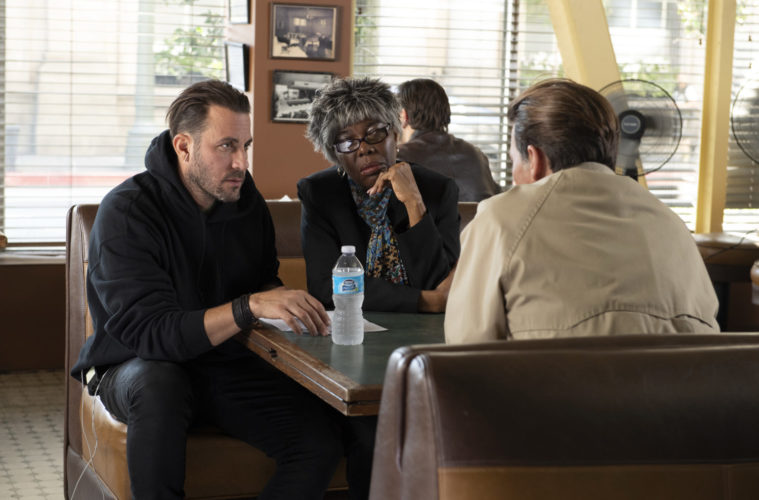In 1997, Christopher Wallace, aka The Notorious B.I.G. and Biggie Smalls, was murdered. His case is still open to this day.
A new movie seeks to bring justice to his family, as well as shine a light on the layers of corruption rumored to surround the investigation into his death.
“It’s called City of Lies, which sheds new light and tells the story in a way that I haven’t personally seen it told before,” said Brian Calle, host of the L.A. Weekly podcast, as he introduces this week’s guests: Director Brad Furman, actor Dominique Columbus, and investigative journalist/executive producer Don Sikorski.
“It’s a story that gets into the failure of the institutions, the responsibilities of us as individuals to take care of these things in manners that we don’t … this is a harsh reality and a real tragedy,” explains Furman.
The film touches on many of the issues that we as a nation are still grappling with, including media integrity, policing and the treatment of the Black community. But its main focus is that of the unsolved murder.
“It’s unimaginable that this actually is a reality. I feel like our movie goes in-depth trying to lay out everything so that it is ‘solved,’ because we do have the information. But this is a story that people don’t want told, or many people I should say don’t want told, but I do think there’s a lot of people that do want it told,” shares Furman. “I was warned not to pursue the story, so it’s a really tricky area for many many reasons.”
 Who warned him not to make the film?
Who warned him not to make the film?
“I got it from every angle. Don [Sikorski] actually brought me the book, and in getting the book I was incredibly moved and felt we had to make this a movie. It was a 10-year plus journey,” describes the director. “By the time I was making it, even though the book was over a decade old, the reality for me was – I was very quiet because I’m very private in how I decide what I’m going I do, it’s a personal journey because it’s such a long commitment – it did get out much quicker than I expected that we would be making this movie and as a result of that what ended up transpiring was some people I knew from the LAPD reached out to me, people from the Sheriff’s office, friends of the friends of the friends from the streets came to me and said ‘you don’t really know the streets in that way.’ I just saw it from every angle.”
People that care about him were worried that he was getting into something much bigger than him, but Furman felt an obligation to press on despite the cautions. In fact, the repeated warnings from friends and could-be enemies emboldened the sense of responsibility within him to give voice to the truth and justice of the story.
A central theme to the film is the implication that law enforcement was involved in the killing, and that there is a community hunch that the established L.A. media, at the time, was complacent in the coverup that was happening.
“To explain what happened at the L.A. Times, it’s very simple,” lays out investigative journalist/executive producer Sikorski. “There was a Deputy Chief named Mike Burkow at the LAPD, and Burkow was brought over by [William] Bratton to be his fixer inside of the LAPD. And simply what happened is Burkow was feeding Chuck Phillips at the L.A. Times false narratives and false stories, and Chuck Philips was printing those stories. They outed an informant named Psycho Mike Robinson in one of them, as an example of what they did, and there are actually recordings between Mike Burkow at the LAPD and Chuck Phillips where he basically tells Chuck Phillips that the FBI agent at that time, Phil Carson, who was investigating the murder for the FBI, needed to be ruined and the narrative had to be changed. Phil Carson listened to those recordings, and Chuck Phillips disappeared.”
Sikorski has hired two private detectives to find Phillips, but had no luck officially locating him. Though he does have a hunch about his whereabouts, as evidenced on the podcast.
“But if there is anyone in this story who has many secrets, still to this day, it is Chuck Phillips,” confirms the producer.
Rumor has it that FBI agent Carson was coming close to finding out the truth behind the murder.
“Burkow was the one who managed the coverup, for the LAPD, inside the LAPD,” elaborates Sikorski. “Now he wasn’t the only one, but he definitely had an active role in feeding the L.A. Times untrue stories, and the reason he did that – the motivation for which he did that – is Phil Carson, the FBI agent, was coming very close to the truth. And they could not have that happen.”
It was immensely corrupt, and a story that has never really been deeply explored – until now.
How is Sikorski so assured that the story City of Lies is telling is factual?
“In order to understand the cover-up of the murder of Biggie, you have to have access to two sets of documents,” Sikorski elaborates. “The discovery documents that were shared between the LAPD and Mrs. Wallace, that’s the first set of documents you need. The second set of documents to really understand the cover-up is the FBI file that Phil Carson compiled when he investigated this murder for the FBI field division.”
There’s only a handful of people with access to copies of these documents: attorney Perry Sanders, Sergio Robleto (the private investigator hired by the Wallace family), and Sikorski himself.
“In these documents, it states in black and white many facts as to what transpired, when, the dates, and the names of the individuals at the LAPD that covered this up,” says Sikorski.
There is another document that is still under a protective order, that the producer suspects outlines top to bottom all the missing details.
“When I say these things, I don’t say these things with conjecture. I say these things after reviewing government documents that are under protective seal and government documents that I was able to acquire from the FBI,” assures Sikorski.
The film asserts that one of the reasons the LAPD would want to allegedly cover up something like this is because of the financial implications — the idea that it could bankrupt the police department.
It may be the reason the case is still unusually open today.
“By keeping the case open, this allows them to not give discovery to the Wallace family. It’s a legal technicality. What it does is protect the documents that show the involvement of LAPD officers in the orchestration of the murder,” explains Sikorski. This avoids a massive payout from the LAPD.
“It’s so interesting hearing how things can be covered on this level, to this degree, because it’s baffling to me to still see the patterns and the habits happening today,” says Dominique Columbus, who plays Tyrell in City of Lies.
In the film, his character says “a couple of brothers gets shot and nobody gives a damn, do they?” A sentiment that the actor fears still applies to this day.
“When things like this happen in the world today, it really affects [me and my friends] because we have to take into consideration … not only how the world moves but how police officers treat minorities,” Columbus continues. “So if it can happen on that scale, it can happen to any of us. That was probably one of my favorite things about this film and being a part of this film, just the authenticity in that. Just to create a conversation.”
Learn more about the discoveries unveiled in City of Lies, streaming now. Listen to the podcast here: Spotify, Apple Podcasts or at Cumulus Los Angeles.
Advertising disclosure: We may receive compensation for some of the links in our stories. Thank you for supporting LA Weekly and our advertisers.

